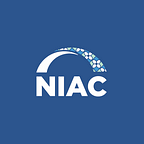Academics Against Sanctions
The National Iranian American Council (NIAC) joins dozens of prominent academics in calling on the Treasury Department’s Office of Foreign Assets Control (OFAC) to reform overly broad sanctions that hamper academic exchange. The letter comes amid disturbing reports of Iranian students being dropped or deferred by U.S. universities amid new COVID-19 restrictions. For students from Iran and other sanctioned countries, continuing their education remotely is not an option because of U.S. sanctions that prevent them from accessing necessary online services and technology. OFAC should hear the call of this letter’s signatories and take immediate steps to remove sanctions barriers for students seeking to continue their higher education remotely during this unprecedented time.
The full text of the letter can be found below and in PDF form here.
September 21, 2020
Andrea M. Gacki
Director, Office of Foreign Assets Control
U.S. Department of Treasury
1500 Pennsylvania Ave., NW
Washington, DC 20220Dear Ms. Gacki,
As academics from higher-learning institutions across the United States, we write to urge the U.S. Department of Treasury to closely examine the impact of overly-broad sanctions on both international students and free academic exchange. Such sanctions do not appear to serve any valid national interest, while needlessly harming those pursuing an education and seeking to contribute to global public knowledge, science and health.
New restrictions on international students amid the COVID-19 pandemic will unfortunately be exacerbated by U.S. sanctions. Given the Department of Homeland Security’s recent order barring new students from the United States who would be taking online-only classes, many universities have already announced that sanctions prevent them from offering online coursework to individuals in sanctioned countries, including Iran. Likewise, many technology companies have also barred individuals from sanctioned companies from accessing many of their services, including Apple, Amazon and Google.
This serves no national interest, while needlessly turning away bright individuals who could better their own country and the world through education at some of the best universities in the world.
Additionally, we fear that U.S. sanctions needlessly restrict broader academic exchanges between the U.S. and sanctioned countries, including those aimed at advancing scientific knowledge or public health. For example, the Neuromatch Academy — an online 2.5 week computational neuroscience course involving thousands of students in 65 countries — was advised by lawyers that it had to drop scores of Iranian students and teaching assistants from joining as a result of U.S. sanctions. Despite the fact that neuroscience has no adverse national security impact, the summer school program still unexpectedly found itself restricted by U.S. sanctions.
An urgent appeal to the Treasury Department secured a last-minute license for Neuromatch. However, we fear that many similar academic exchanges either would not secure a license or would not even attempt to secure one.
As academics committed to fostering greater global knowledge and understanding, we strongly oppose the use of sanctions to punish students or inhibit individuals from furthering their education solely based on their nation of origin. As a result, we call on OFAC to immediately revise its sanctions statutes and authorize all activities necessary for individuals in sanctioned countries to access online coursework and academic exchanges, and clearly communicate those policies to academic institutions across the United States.
Signatures (institutions are for affiliation purposes only):
Arash Ashrafnejad, Bilkent University
Dr. Alexandra Badea, Duke University
Dr. Narges Bajoghli, John Hopkins University
Dr. Shahab Bakhtiari, McGill University
Dr. Mehrzad Boroujerdi, Virginia Tech
Dr. Edward Bracey, ETH Zurich
Dr. Matteo Carandini, University College London
Dr. Juan Cole, University of Michigan
Dr. Julia Elyachar, Princeton University
Dr. Hadi Esfahani, Universitiy of Illinois at Urbana Champaign
Dr. Farideh Farhi, University of Hawai’i at Manoa
Dr. Roozbeh Farhoodi, University of Pennsylvania
Dr. Behrooz Ghamari Tabrizi, Princeton University
Azaadeh Goharzad, University of Delaware
Dr. Niloofar Haeri, John Hopkins University
Dr. Lara Harb, Princeton University
Dr. Kevan Harris, UCLA
Dr. Meysam Hashemi, Aix Marseille
Dr. Mohammad Ali Kadivar, Boston College
Dr. Mohsen Kadivar, Duke University
Dr. Arang Keshavarzian, New York University
Dr. Daniel Khashabi, Allen Institute for AI
Dr. Mana Kia, Columbia University
Dr. Konrad Kording, University of Pennsylvania
Dr. Eric Kuebler, Western University Canada
Dr. Satyel Larson, Princeton University
Dr. Tyler Manning, University of California, Berkeley
Dulce Mariscal, University of Pittsburgh
Dr. Ali Mirsepassi, New York University
Dr. Manijeh Moradian, Barnard College
Hadi Nekoei, Montreal Institute for Learning Algorithms
Neuromatch Academy
Dr. Stephanie Noble, Yale University
Erfan Noury, University of Maryland at Baltimore County
Dr. Trita Parsi, Georgetown University
Shannon Proksch, University of California, Merced
Dr. Assal Rad, National Iranian American Council
Ameet Rahane, Northwestern University
Dr. Nasrin Rahimieh, University of California, Irvine
Professor Davood N. Rahni, Ph.D, Pace University
Dr. Negar Razavi, Northwestern University
Dr. Marina Rustow, Princeton University
Dr. Ahmad Sadri, Lake Forest College
Dr. Muhammad Sahimi, University of Southern California
Dr. Djavad Salehi-Isfahani, Virginia Tech
Dr. Fatemeh Shams, University of Pennsylvania
Dr. Sussan Siavoshi, Trinity University
Dr. Daniel Sheffield, Princeton University
Dr. Marshall Shuler, John Hopkins University
Milad Soltanzadeh, Concordia University
Dr. Ali Toossi, University of Illinois at Urbana Champaign
Dr. Sabah Ul-Hasan, The Scripps Research Institute
Dr. M Reza Vaghefi, University of N. Florida
Dr. Max Weiss, Princeton University
